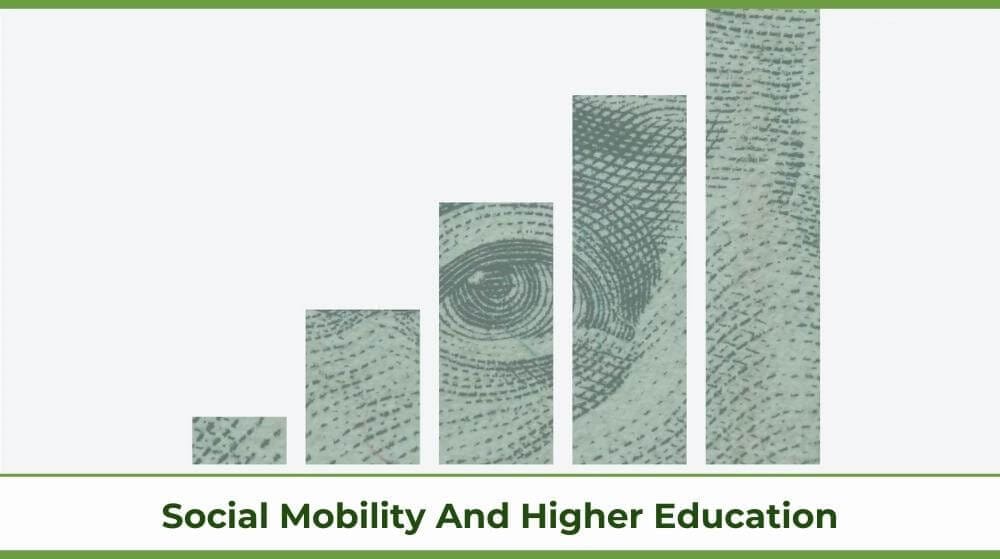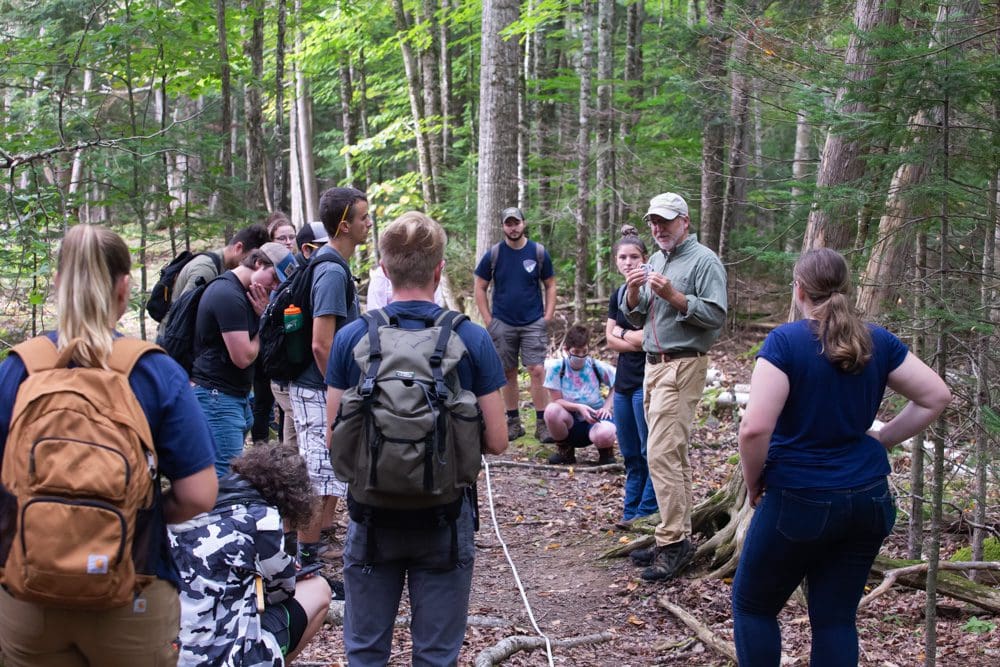
The Positive Impact Of Higher Education As Social Mobility
Social mobility is what the American dream is based upon – the idea that hard work can improve your economic circumstances. Education as social mobility is a key part of that, but research shows that social mobility in the US is limited.
The United States is not a meritocracy, and operating as though it is one is detrimental to the accessibility of economic opportunities for low-income families. SAT/ACT tests are good examples of the harm of this meritocracy myth. While they are meant to objectively test intelligence, these admissions tests are known to be inequitable. The tests are culturally biased, and students from wealthy families have access to expensive test prep services that are sure to increase their scores.

Unity Environmental University stands by its principles to be culturally competent and accessible to all types of students, ranking #1 in the 2023 Social Mobility Index Report for universities in Maine.
What Is Social Mobility In Education?
Social mobility is changing one’s social and/or economic status. When we talk about social mobility within a society, we are referring to how accessible increased economic status is to low-income families. Historically in the US, higher education has been a key factor for social mobility. However, today, the majority of students enrolled in top universities come from high-income families. There remain many barriers to social mobility in educational systems:
- The cost of college and living expenses
- High student loan interest rates
- Standardized test score requirements
- Significant disparities in K-12 education quality
The Role Of Higher Education In Social Mobility
Social mobility and education go hand in hand. People with a bachelor’s degree earn more money than those without – $765,000 more on average in their lifetime. They are also exposed to new people, new ideas, and new opportunities. However, unless the barriers to higher education are addressed, a bachelor’s degree will remain out of reach for many young people from low-income families.
As of 2023, students coming from families in the top 1% of the income distribution are 34% more likely to attend top colleges than other students. Wealth should not be a factor in college admissions. Effective programs and initiatives that promote social mobility and education are needed. For example, a paper in the Education Finance and Policy Journal found that small college class sizes decrease student dropout rates, and since students from low-income families have higher dropout rates, smaller class sizes could better support these students.

Unity Environmental University has a student-to-faculty ratio of 36:1 and flexible start dates all year.
The Economic Perspective On Education As Social Mobility
Higher education can lead to better job opportunities and higher income, thereby contributing to upward social mobility. Keep in mind that social mobility in education is not about a short-term increase in income. It’s about a generational increase in status and access. That’s why we use lifetime earnings to measure education and social mobility.
Estimated lifetime earnings based on education level:
|
Men |
Women |
|
|
High school graduate |
$1.54 million |
$800,000 |
|
Bachelor’s degree |
$2.43 million |
$1.43 million |
|
Graduate degree |
$3.05 million |
$1.86 million |
Source: Social Security Administration
Higher Education’s Return On Investment
Investment in higher education pays off in the long run. Even with the rising costs of tuition, college has a high return on investment (ROI) – up to 35.9% according to some economists. ROI is calculated by determining how much money the college degree costs versus how much the individual will make because they earned the degree.
While every degree doesn’t offer the same level of ROI, demand for green jobs like environmental scientist and wind turbine service technician is expected to increase in the next ten years, making an investment in an environmental university a smart financial decision.

Unity offers career development to help students maximize their ROI.
Beyond Economic Gains: The Holistic Impact
Young people who engage in high-quality schooling tend to grow into happier and healthier adults than those who do not. And education as social mobility isn’t just about individual gains; it’s beneficial to communities in numerous ways. According to a study by Gallup, higher education can:
- Increase civic engagement
- Decrease crime rates
- Increase concern for the environment
- Create more diverse social networks
Unity Environmental University recognizes the value of these non-economic impacts of higher education, which is why we use a holistic, innovative approach to education. Unity was the first university to divest from fossil fuels and recently opened a Technical Institute for Environmental Professions to allow students to earn a career-oriented associate degree in as little as 18 months.
Building Social Capital
A study from 2022 found that young people who have social capital with people from different economic statuses are more likely to achieve increased social mobility. College is a great place to build strong connections with people from high-income families through informal friendships or official networking events. Economically diversifying their social network will create new social and economic opportunities for low-income students.

How Unity Environmental University Is Making A Difference
In 2023, Unity Environmental University was recognized as Maine’s largest university, enrolling over 7,500 students from all 50 states, U.S. territories, and 21 countries. Unity was also ranked the number one school for social mobility by the 2023 Social Mobility Index. This shows that our efforts to promote equity have made a difference.
We have found that the biggest pain point of higher education and social mobility is finding affordable and accessible education. Therefore, we focus on efforts to make college more affordable and accessible. Here’s how we do it:
- With over a dozen completely online bachelor’s degree programs, students can study without having to leave their community. This means no travel costs or additional living expenses.
- Our unique academic structure allows students to focus on one class at a time. Each course is five weeks long. This is beneficial to students who are working full-time and/or taking care of family members as they may not have the capacity to juggle multiple courses at once.
- Distance learning students do not pay any unnecessary fees. The only costs are tuition, books, and a $100 graduation fee.
- Over 90% of students receive need-based financial aid, and all our scholarships are based on need.
- To make our admissions as equitable as possible, we do not require standardized test scores from any applicants.
- We use an Enterprise Model for effective leadership to meet the changing needs of students and society as a whole.

Ready To Learn More About Unity Environmental University?
Give To Unity Environmental University Scholarships To Help Us Continue Fostering Social Mobility
Funding continues to be a barrier to low-income students attending and graduating from college. In our strategic plan for 2025, Unity’s number one goal is to serve audiences through engagement with the college and its mission in response to clearly identified needs. Increased access for low-income students is one of those clearly identified needs. By giving to Unity Environmental University Scholarships, you can provide an equality of opportunity where there was not one previously.



